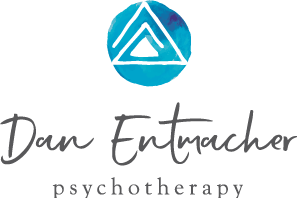 Holiday season is upon us, which for most of us means a lot more time spent with family than usual. Everyone’s family is different and each member of a family system has a different take on what it’s like, however an almost universal experience people have with their family is the uncanny ability they have to send them into old ways of being and relating.
Holiday season is upon us, which for most of us means a lot more time spent with family than usual. Everyone’s family is different and each member of a family system has a different take on what it’s like, however an almost universal experience people have with their family is the uncanny ability they have to send them into old ways of being and relating.
No matter how much you have grown and changed as an adult, and despite your best most genuine intentions to show up as one, you will likely get the sense of loosing ground and Benjamin Buttoning your way back into old habitual ways of being during family gatherings. This can leave you feeling anywhere from an angsty teen to a frustrated toddler, which I’m guessing is probably not how you want to spend your holidays.
As the insightful Ram Das once said, “If you think you’re enlightened go spend a week with your family.”
 The family system is actually quite powerful. It has it’s own gravitational pull, so to speak. This is because the patterns of being and relating you experience when you see your family were set up during a very impressionable period of your life, childhood. When all the pieces of the system come back together the pull gains power and everyone finds themselves acting in old, often dysfunctional, ways. Additionally, your family often includes the people that have known you the longest but have seen the least of your growth and transformation as an adult, unlike say a best friend from childhood. Because of this, they have a concept of who you are that is heavily influenced by the past. When someone has strong expectations of an individual in this way people tend to unconsciously conform to those ideas, especially when the conditions and surroundings match those of a younger you.
The family system is actually quite powerful. It has it’s own gravitational pull, so to speak. This is because the patterns of being and relating you experience when you see your family were set up during a very impressionable period of your life, childhood. When all the pieces of the system come back together the pull gains power and everyone finds themselves acting in old, often dysfunctional, ways. Additionally, your family often includes the people that have known you the longest but have seen the least of your growth and transformation as an adult, unlike say a best friend from childhood. Because of this, they have a concept of who you are that is heavily influenced by the past. When someone has strong expectations of an individual in this way people tend to unconsciously conform to those ideas, especially when the conditions and surroundings match those of a younger you.
Whether you are generally looking forward to some quality time with those you love and whom know you well, or dreading the impending chaotic storm that is your family, there are some simple and practical actions you can take that could help to improve or even transform your experience of family time. Though you may not be able to change all dysfunctional patterns in one holiday season, you can certainly bring some fresh new perspectives to a potentially stale and worn out system. Often these new behaviors have a more powerful and lasting impact than one expects. Ok let’s begin . . .
1. Set Accurate Expectations and Leave Room for Self-Compassion
 If you are like me, you have probably said to yourself once or twice, in preparation for a family gathering, “This time it’s going to be different because I’m going to be different.” However, I discovered that it rarely was because even though I was different I didn’t so much show up that way in the family system. The first step in transforming your experience of your family is to have accurate expectations of not only their behavior and it’s impact, but your own as well. When you are aware of the power of the family system on everyone you can enter into it with more self-awareness and self-compassion. In practical terms this means not beating yourself up when you fail to meet your own expectations of how you want to show up with your family.
If you are like me, you have probably said to yourself once or twice, in preparation for a family gathering, “This time it’s going to be different because I’m going to be different.” However, I discovered that it rarely was because even though I was different I didn’t so much show up that way in the family system. The first step in transforming your experience of your family is to have accurate expectations of not only their behavior and it’s impact, but your own as well. When you are aware of the power of the family system on everyone you can enter into it with more self-awareness and self-compassion. In practical terms this means not beating yourself up when you fail to meet your own expectations of how you want to show up with your family.
When you notice that you are acting out an old habitual patterns and meet it with a measure of kindness and understanding you are transforming the system through behavior modeling, which is largely the way the family system was created in the first place. Though it may not be dramatic or flashy, noticing old ways of being in yourself with kindness and compassion, instead of negative self-judgment, makes a difference one step at a time. Oftentimes, if you are able to shift how you hold your own tendency to slip into old ways of being and relating you are able to extend that same compassion and understanding to others. When you do this you are also beginning the process of releasing them from your preconceived notions of who they are and how they will behave. More on that later.
Action: During a family gathering make a point to notice when you are acting in an outdated habitual way of being and greet it with as much kindness, compassion, and understanding as possible in that moment. Do this at least 3 times a day without necessarily changing your behavior.
2. Practice Active Listening
One of the best ways to make a positive shift in an old way of relating is to really listen. Sounds simple right? It is. However, it’s not always so easy if listening goes against the habitual pattern of the family system.
 Oftentimes, if someone is speaking about something that bothers them the most effective form of support is to provide active listening. This allows them to feel truly heard. Active listening is simple. You first have to stop focusing on what you want to say in response and start to listen to what the other person is actually saying. Intermittently you can do and say simple things that let them know that you are listening and not just spacing out. Eye contact (in Western culture), nodding your head in agreement, smiles or frowns are all forms of contact using body language. You can also make short summarizing or contact statements such as, “Wow, that sounds really difficult,” or “So, sounds like you are saying you really struggle to communicate with your daughter.” These statements are meant to communicate that you truly hear what the other is saying. You may also want to experiement with interjecting impact. For example, “Wow, I feel sad hearing that and I really relate to your struggle with your daughter.”
Oftentimes, if someone is speaking about something that bothers them the most effective form of support is to provide active listening. This allows them to feel truly heard. Active listening is simple. You first have to stop focusing on what you want to say in response and start to listen to what the other person is actually saying. Intermittently you can do and say simple things that let them know that you are listening and not just spacing out. Eye contact (in Western culture), nodding your head in agreement, smiles or frowns are all forms of contact using body language. You can also make short summarizing or contact statements such as, “Wow, that sounds really difficult,” or “So, sounds like you are saying you really struggle to communicate with your daughter.” These statements are meant to communicate that you truly hear what the other is saying. You may also want to experiement with interjecting impact. For example, “Wow, I feel sad hearing that and I really relate to your struggle with your daughter.”
It is important to remember that in active listening you are not giving advice, trying to fix, or draw conclusions. This is often where active listening goes awry. In this simple practice you should only be repeating key points of what you hear, making contact, and sharing impact. If after a period of listening and the conversation shifts you can always ask of they want any advice or if simply listening was enough. Make sure to give them a choice! You may be very surprised how one or two sessions of active listening can transform your negative aunt Nancy into a relatable human being.
Action: Practice active listening for at least 10 minutes with at least two family members a day during a family gathering.
3. Create Space and Time for Yourself to Re-center
 The simple inertia and force of a family system is enough to sweep the most “enlightened” individual off of their feet and into their 8-year-old self. Taking space and time away from your family everyday, either by yourself or with a spouse or partner, can make a big difference in your ability to show up present, centered, and as your adult self. Perhaps this shows up as a morning walk, time for meditation, journaling, or just time to check-in with your spouse or partner. The important thing is to take this time for yourself everyday and that the intention of the activity is to re-center and reorient yourself to who you really are outside of the family system. It is also a time to feel any feelings that perhaps the system does not support or allow, as well as get clear on any actions you may want to take, like suggesting a game to play that encourages interaction, etc. Generally, you want to take as much time as it takes to get a felt sense of rejuvenation and your adult-self returning.
The simple inertia and force of a family system is enough to sweep the most “enlightened” individual off of their feet and into their 8-year-old self. Taking space and time away from your family everyday, either by yourself or with a spouse or partner, can make a big difference in your ability to show up present, centered, and as your adult self. Perhaps this shows up as a morning walk, time for meditation, journaling, or just time to check-in with your spouse or partner. The important thing is to take this time for yourself everyday and that the intention of the activity is to re-center and reorient yourself to who you really are outside of the family system. It is also a time to feel any feelings that perhaps the system does not support or allow, as well as get clear on any actions you may want to take, like suggesting a game to play that encourages interaction, etc. Generally, you want to take as much time as it takes to get a felt sense of rejuvenation and your adult-self returning.
If you have a spouse or partner that is also interested and willing to try this activity I highly suggest including them for at least part of this time. You are going to be a more powerful agent of change in your family together and you can support each other in remembering who you each are outside of your family system and how each of you can bring in more of that.
Action: Create 20 minutes of time and space twice a day during a family gathering where you can re-center yourself. Use the list of re-centering activities above if you need ideas.
4. Release Your Preconceived Notions and Create One-On-One Time
 Just in the same way that family members hold outdated ideas and concepts about who you are, which you can end up conforming to, you have outdated ideas about them. This is especially true with siblings but also applies to parents. You can take action on this by simply repeating this phrase each morning, “I now release and dissolve all concepts, ideas, and preconceived notions of who my family is and open to seeing them as they truly are.” You may find some startling results.
Just in the same way that family members hold outdated ideas and concepts about who you are, which you can end up conforming to, you have outdated ideas about them. This is especially true with siblings but also applies to parents. You can take action on this by simply repeating this phrase each morning, “I now release and dissolve all concepts, ideas, and preconceived notions of who my family is and open to seeing them as they truly are.” You may find some startling results.
Another way to begin to see your family members for the people they are instead of the people they were is to spend some one-on-one time with them. Simply, asking to go on a short walk with a family remember–while perhaps practicing some active listening–can reveal new and refreshing aspects of who they are outside of the system.
Action: Practice releasing your concepts about your family through repeating the phrase, “I now release and dissolve all concepts, ideas, and preconceived notions of who my family is and open to seeing them as they truly are,” twice each morning before you encounter our family, and through creating one-on-one time at least once a day.
5. Communicate Without Aggression
Every family has a different average level of conflict and conflict style. Some families deal with conflict out in the open with big blowout fights and others practice more covert forms of aggression and prefer conflicts to be left on a long slow simmer. No matter the level and style of conflict your family system has, removing aggression from your own communication can have a big impact. The best way I have found to do this is through a practice developed by Marshall Rosenberg called Non-Violent Communication or NVC. Essentially, the idea in NVC is to take responsibility for your own thoughts, feelings, and actions and to communicate in such as way that reflects this. When this occurs we remove the aggression from our communication and in doing so trigger far less of the other individual’s defense mechanisms, which can show up as a counterattack.
- Observation: “When you leave a mess for me to clean up after dinner and expect me to take care of it”
- Feeling/Impact: “I feel angry, hurt, and confused.”
- Need: “I have a need to feel respected and treated as an equal.”
- Request: “I would like you to equally share the responsibilities of cleaning during family meals and if you are unable to, to please communicate to me why.”
Where people most often get tripped up is confusing a request for a need. Needs are the deeper emotional underpinnings of our distressing feelings and requests are specific actions. If you are struggling with identifying the need/s you can ask yourself, “What would I need to feel in order to no longer feel these negative reactions?” For a more in depth explanation of the steps click this link. Also, if you like to practice and want to learn more I suggest reading Marshall’s book Non-Violent Communication.
I suggest practicing this before you jump into your family system. Again, a spouse or partner can be very helpful here (it can also transform your relationship, but that’s a story for another post). If you do decide to practice removing aggression from your communication, I suggest starting with smaller conflicts at first. You also want to communicate in as natural a manner as possible. When it feels like you are simply following a technique instead of being genuine people pick up on this. Also, understand that it is a practice that takes time and effort to refine.
Action: During family gatherings practice communicating without aggression by using NVC in smaller conflicts or simply with long standing challenges you may have with a family member.
6. Reviewing the Results Objectively
 After all is said and done and everyone goes their separate ways, you may be tempted to focus on the “failures” of you and your family to change and grow, especially if focusing on the negative is a family pattern. However, it is very important to instead focus objectively on the results of all your mini social experiments. As much as you can, imagine that you are a scientist that was observing the actions of your family through a very thorough network of hidden cameras and you are now reviewing the data. What worked, what didn’t, and why? How were you impacted and how did you impact others? What happened when you did something different than was expected of you? Make a note of these things and if possible write them down in a journal. If there were any positive shifts make sure to thoroughly note and examine these.
After all is said and done and everyone goes their separate ways, you may be tempted to focus on the “failures” of you and your family to change and grow, especially if focusing on the negative is a family pattern. However, it is very important to instead focus objectively on the results of all your mini social experiments. As much as you can, imagine that you are a scientist that was observing the actions of your family through a very thorough network of hidden cameras and you are now reviewing the data. What worked, what didn’t, and why? How were you impacted and how did you impact others? What happened when you did something different than was expected of you? Make a note of these things and if possible write them down in a journal. If there were any positive shifts make sure to thoroughly note and examine these.
Action: Post family gathering, spend 20 minutes reviewing the results of the social experiment on your family system objectively and record your findings.
That’s all I’ve got folks. I hope you find this helpful and put it to the test. I wish everyone a happy holiday season and fruitful and surprising results in your family systems! At the very least I wish you great self-compassion and kindness during what can be a tough time for many of us. I also welcome and appreciate any and all feedback, especially on how family time went and what you discovered.
Warmly,
Dan Entmacher


